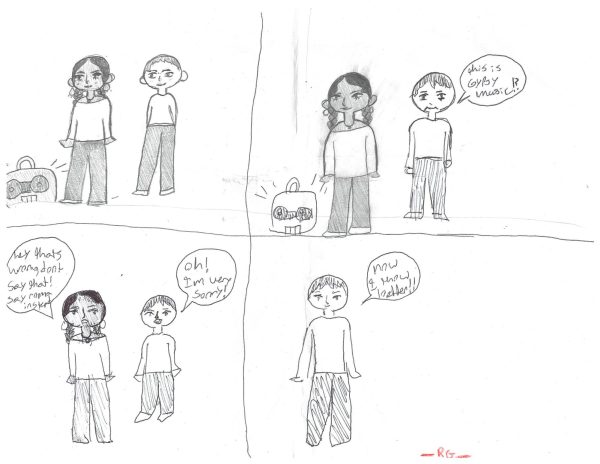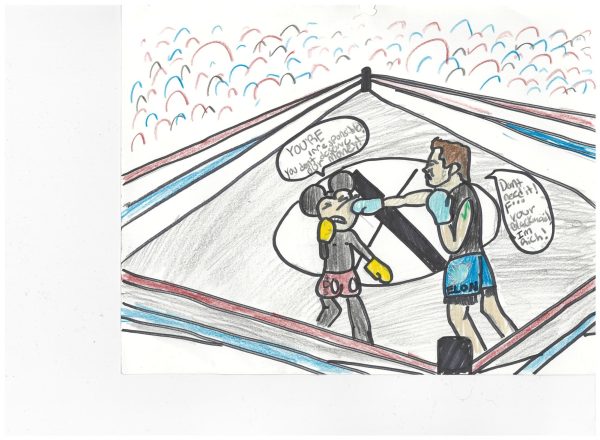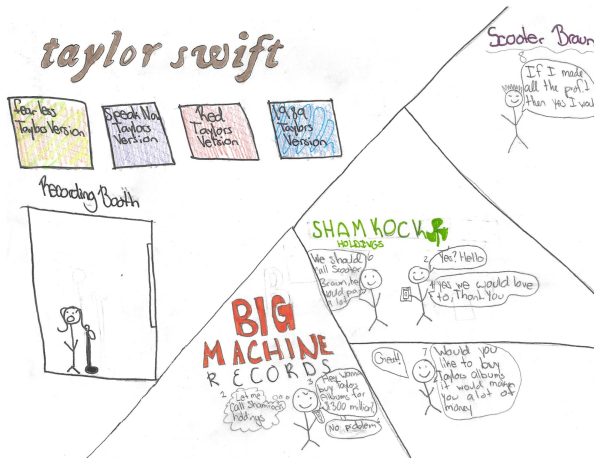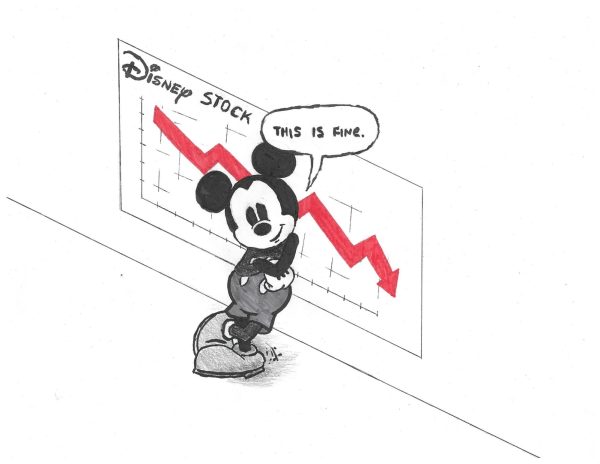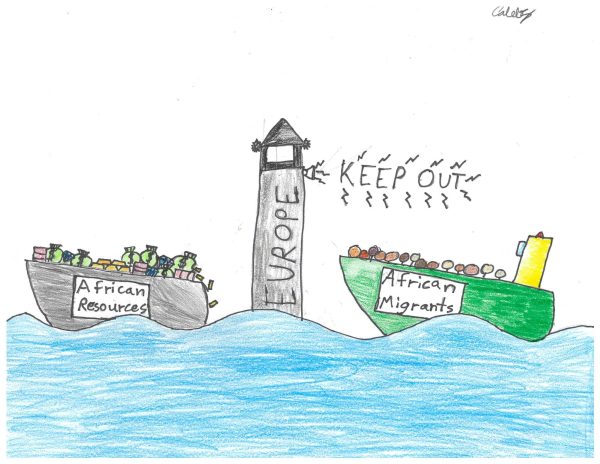The Harmful Cycle of Toxic Masculinity
A phallus image drawn in one of the bathrooms at Hall High School.
The world that men have built through their dominance is crumbling down. Toxic masculinity has been a controversial phenomenon recently within the media and the homes of West Hartford families. It has immensely impacted all citizens, leading to rape, discrimination, and violence.
According to author and psychotherapist Diane F. Barth, “Toxic masculinity ‘dictates that men should be stoic and strong, both emotionally and physically,’ and recognizing that as a problem provides men an opportunity to rethink ‘what it means to be a man today, and what is generally expected of them by society’” (Barth). Toxic masculinity focuses on how men are being portrayed as the most dominant group of people. This entire phenomenon affects men and women more than people think. Parents are an immense part of toxic masculinity because they impose gender norms on their children. When boys grow up with these norms and beliefs, they have the wrong perception of what a man is, therefore leading to toxic masculinity.
Furthermore, hegemonic masculinity, another name for toxic masculinity, has the immense power of potentially harming men and women. This is a topic that is not well-spoken in society. The concept of toxic masculinity exists in the lives of many people, although is not brought up in daily conversation. When interviewing Zack Wilkins, a former Hall student who is now 21 years old, he discussed how toxic masculinity affects the workplace. He said that toxic masculinity “controls his boss” and makes his boss feel like he is superior than all of the employees just because he is a man. Continuing with the interview, Zack described toxic masculinity as, “a kind of mindset; people who think they’re better just because they’re a man” (Wilkins).
Continuing with the downsides of hegemonic masculinity, men may feel intense loneliness due to society bringing them down with this term. Men feel like they have to act a certain way in order for them to be treated and looked upon as a man.
Since the creation of societal standards and gender norms, toxic masculinity has continued to live on through these enforcements. It is the advertising and marketing industry that use this to their benefit as they portray “traditional masculinity” as “heroism, strength, fearlessness, leadership–and dominance”, as stated by author Olivia Campbell. These same companies profit off both men and womens’ insecurities revolving around their gender identity through “popular media, including billboards, magazines, sitcoms, music videos, movies, pornography and advertisements, all of which are notorious for perpetuating harmful stereotypes of race, class, and sex” (Campbell).

Although the root of the problem is connected to superficial shows and objects, it also goes far beyond. Early on, young boys learn that bullying is a norm and fighting back is manly. “Insults like ‘f*g,’ ‘sissy’ and ‘wimp’ are used to box boys into a narrowly defined role that plays out in a ‘tough guise’” (Ruddy). These beliefs are carried out through parents and are passed down to their children, forming a potentially harmful cycle. Jaime Trujillo, a former substitute teacher, knows this cycle well, stating that “It all starts off with the people that raise you. It’s kind of like that first seed that gets planted; if it’s a bad seed it just ruins that person’s mentality towards how he thinks, how he feels, towards a group of people, gender, race” (Trujillo).
Men have constructed a paradise via abusive techniques throughout history. It has come to a point where basic labels and descriptions, especially anything related to the LGBTQ+ community, are viewed as dehumanizing and purely negative. However, not all men are aware and agree completely with the thought of masculinity having a dark side. That’s the case when it comes to Thomas Cass, a junior at Hall. He believes toxic masculinity is simply a cluster of “more complex problems and/or guys being lazy, along with them not caring about things being blamed on toxic masculinity.” He acknowledged, however, that he cannot speak much about the effects of the issue from his position as a heterosexual, white male teenager. When asked about how he believes future generations will combat this issue, he said “I’m not sure, but I think that masculinity in moderation is a good thing, and that it is something to consider when dealing with this issue.” His point has been what the opposing side has brought up to those who are seemingly anti-masculinity. Despite that, the controversies regarding sexual assault, the hypersexualization of women, and hate crimes have usually blocked out any chances of said point gaining any traction.
Our newest generations have been fighting against this cultural monster for the last few years, especially in the world of politics. If this trend continues, following generations will follow pursuit until it is completely eliminated. The question is: Will the fight ever end, and who will win it? It is in our hands, and the hands of our children and our grandchildren. We will decide how masculinity should be shown starting all the way down to what color a baby gets assigned to at birth.


